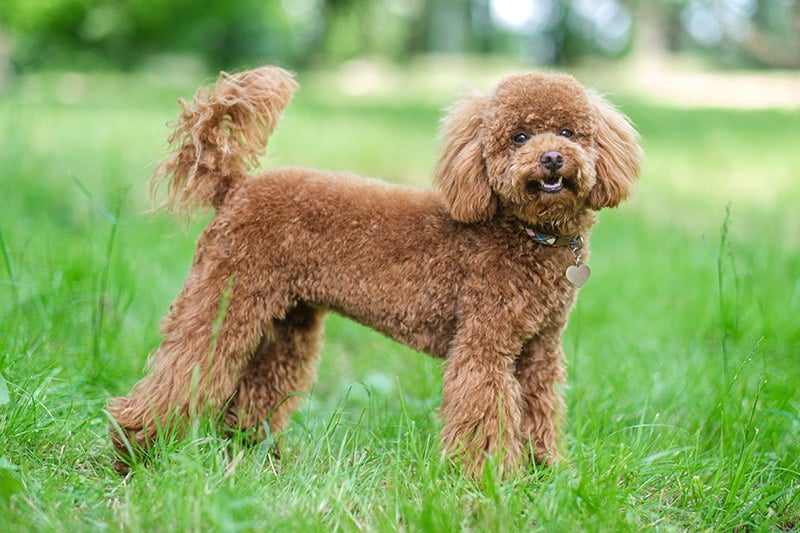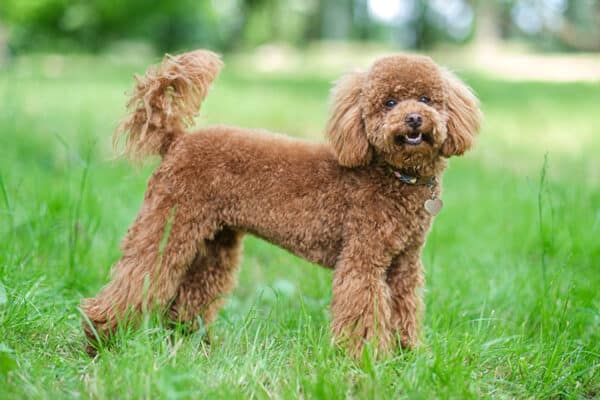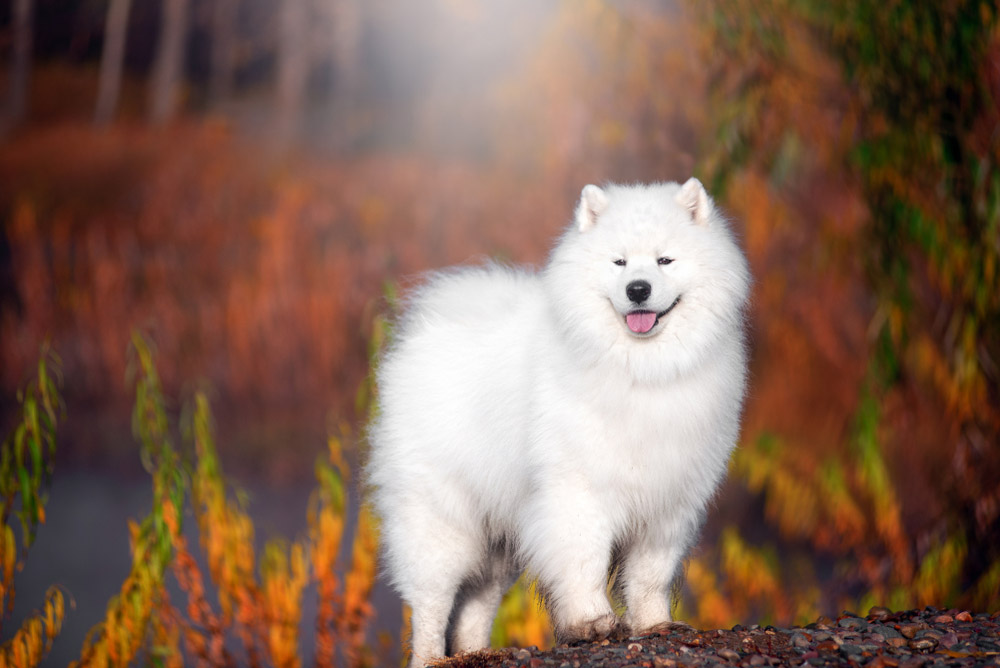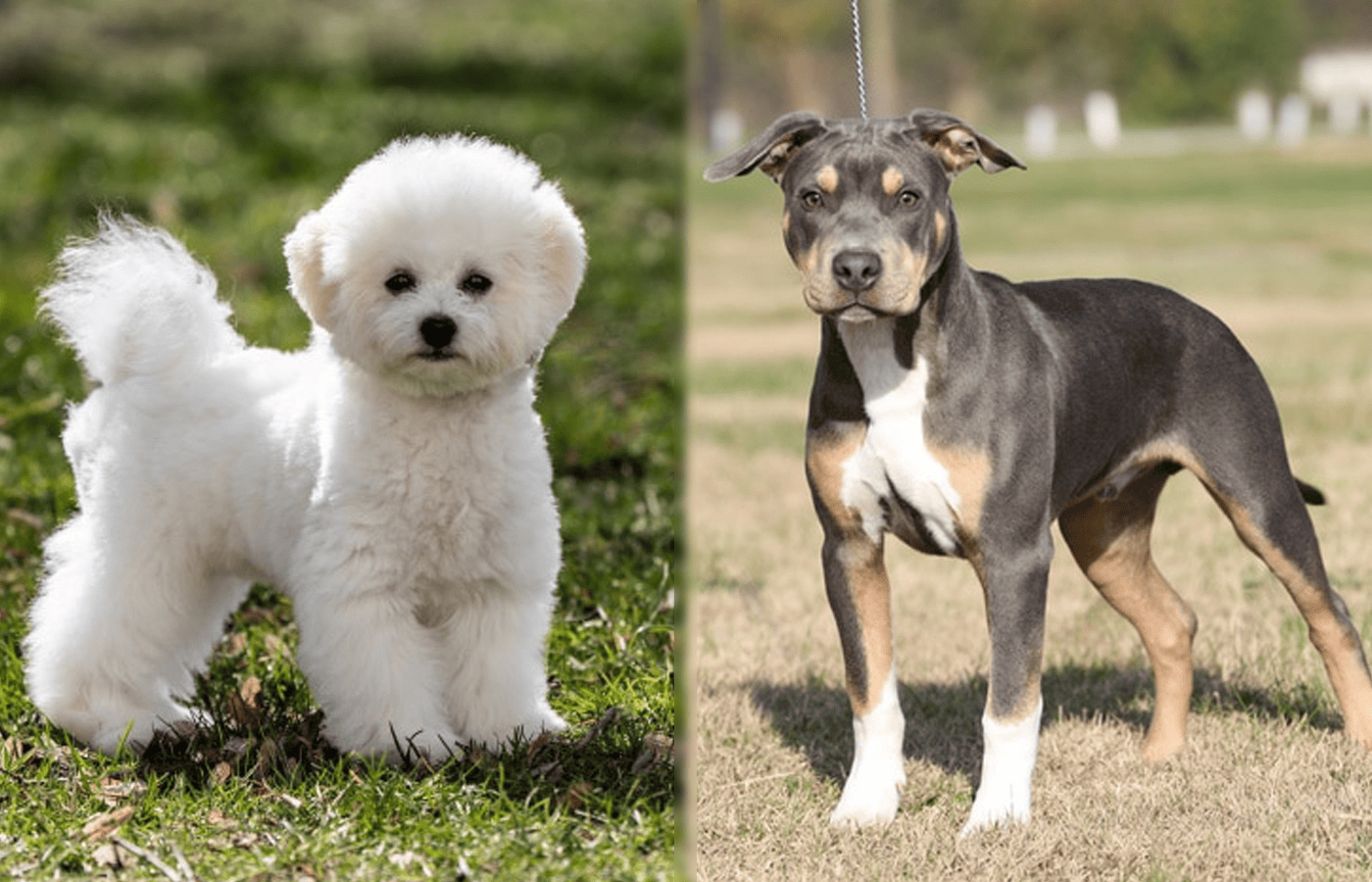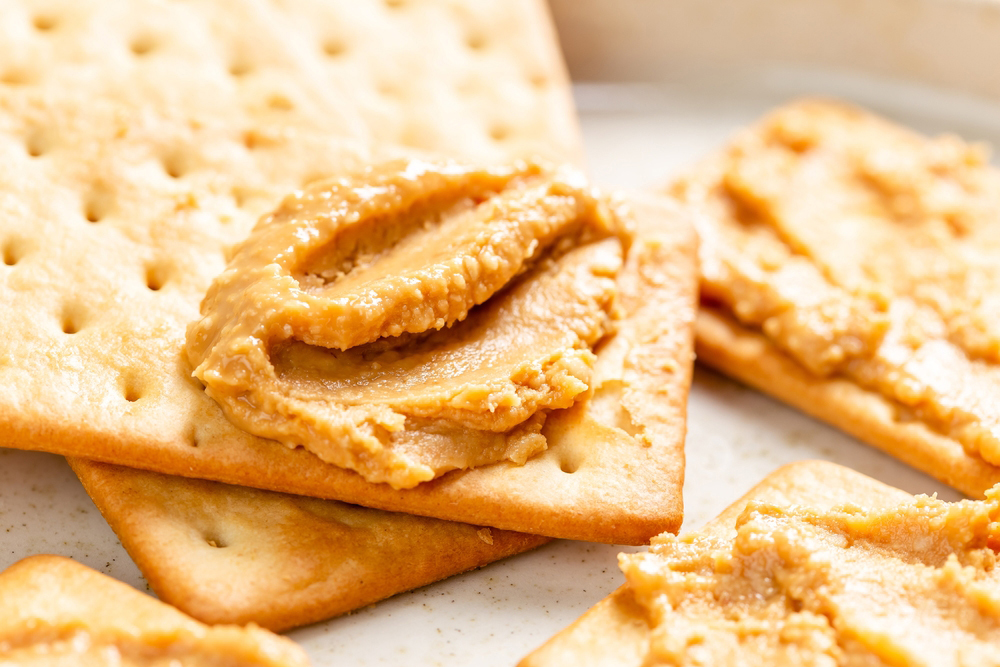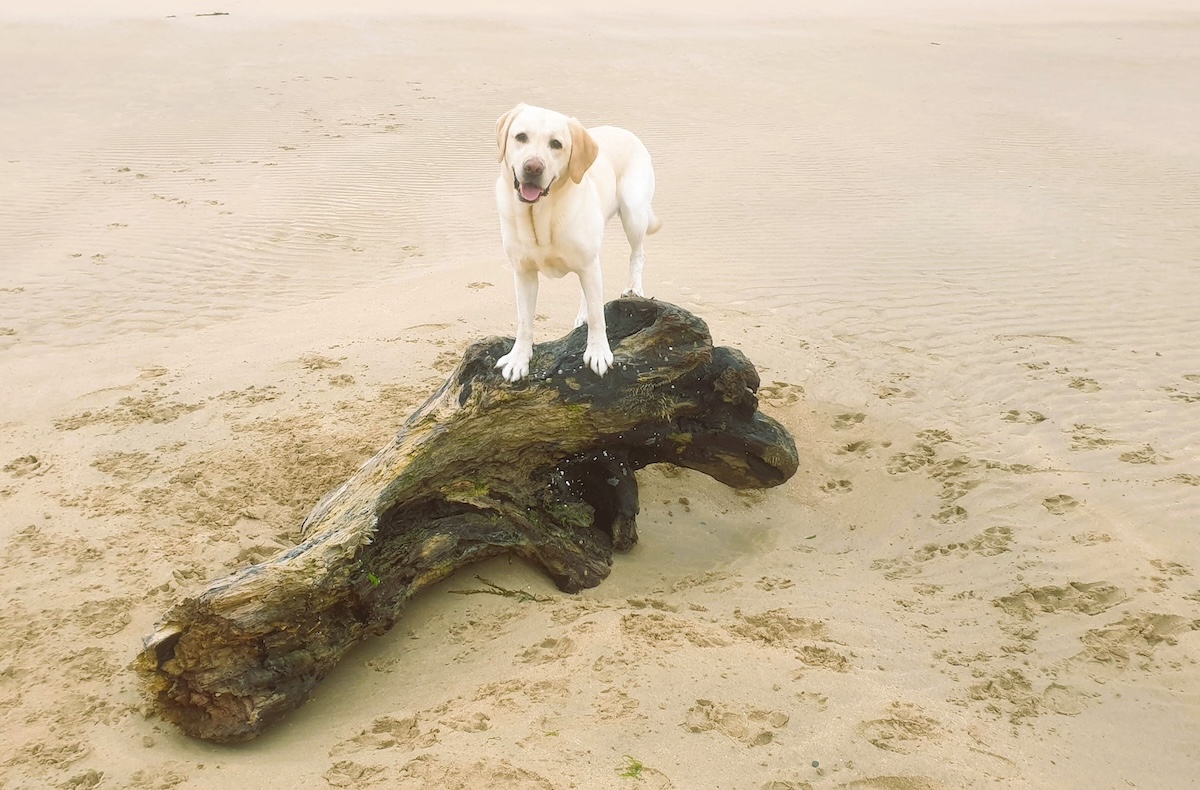Click Below to Skip Ahead
The Toy Poodle is an amazing small breed that has certainly made a mark on the world. They have grown in popularity since their humble beginning and have now been used for a variety of purposes. Not only can an adorable Toy Poodle serve companionship to their owners, but they are also used in a number of breeding programs to create lots of Doodle hybrids.
If you are interested in the Toy Poodle, hopefully we have all the information you need to get a good understanding of what it’s like to own one of these compact little cuties.
Breed Overview
Height:
12–18 inches
Weight:
5–8 pounds
Lifespan:
15+ years
Colors:
White, blue, silver, red, brown, gray, black
Suitable for:
Any canine-loving home
Temperament:
Intelligent, affectionate, attached
The Toy Poodle was developed much later than their standard siblings. These pups have roots in many other countries and took quite a few years to develop into the dog we know and love today.
These little dogs have the classic curly Poodle coat and weigh approximately 6 to 10 pounds as adults. As with many small dogs, owners enjoy the size of the Toy Poodle because it is easy to carry around and suitable for small living spaces.
Toy Poodle Characteristics
Toy Poodle Puppies
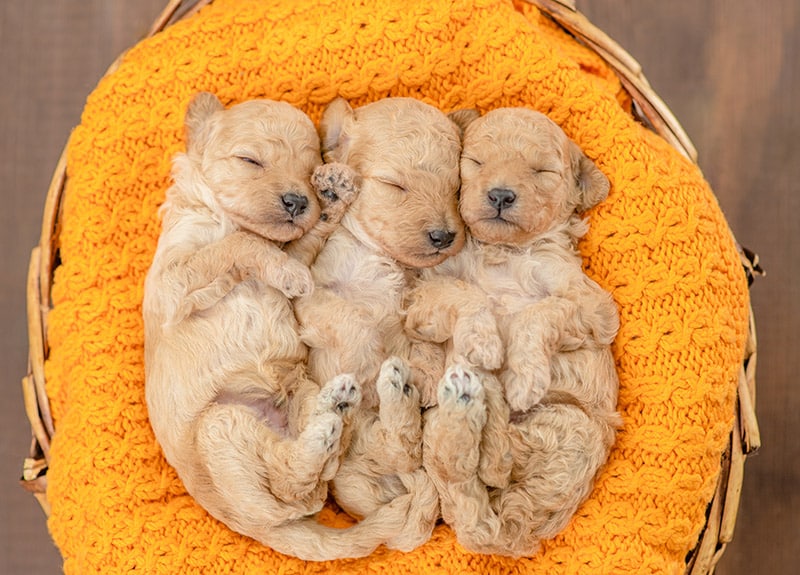
Lookout! The Poodle is known for being the smartest dog of all the canines. The Toy Poodle from birth is going to develop and grow rapidly more so mentally than physically. There are several sizes of Poodle, but the Toy variation is one of the most sought after. These adorable tiny pups only weigh roughly 3.5 ounces when they are born. Just imagine these miniature angels!
Quickly, they grow and develop and are ready for their new homes around 8 weeks of age. It’s very important to choose a reputable, licensed breeder with a history of healthy litters. Since this dog is very popular, they fall victim to backyard breeding.
If you get a Toy Poodle, you should always make sure that you check with the breeder to see what testing and vetting have been done up to this point. It is also important to review and get a feel for the parents’ personalities so you can see what to expect out of your own puppy.
If you are in the market to adopt, a Toy Poodle would make an exquisite choice. These dogs are plentiful and often fall victim to homelessness because people can’t care for them like they should. So, you can always check with local shelter and rescue facilities to see if they have any Toy Poodles that could use a new forever home.
Be very careful of pet shops and pushy or elusive breeders. With Toy Poodles being a common pure breed that is sought after, many people will sell these dogs for profit without properly caring for the mother or litter. It is important that we understand how to recognize these types of sales so we can avoid them.
Temperament & Intelligence of the Toy Poodle
Toy Poodles are notorious for being just as intelligent as the standard variety. These little dogs train very easily, although they can be stubborn and needy. When it comes to potty training, this breed might be a little bit more complicated than some.
The reality is, this is a very small dog with a tiny bladder and they will have trouble holding it for long periods of time. Some Toy Poodles require puppy pads their whole lifetime, but many can be trained to go outside as long as you learn their limits.
The Toy Poodle is extremely aware and intuitive. They bond very well with their human families and can get along with just about any type of animal you have in the home. Rather than being aggressive or overbearing, the Toy Poodle is often gentle and complacent.
This little dog is definitely not one of independence. They heavily rely on their owners for stimulation, affection, and anything else. While they might not be the neediest of all canines, they can certainly require extensive attention. If they will be home alone all day, they might develop separation anxiety. These dogs are best suited for family members who will be able to spend a lot of time with them.
Are These Dogs Good for Families? 👪
The Toy Poodle is not for families who will be away from home for long periods of time. These dogs very frequently and very easily develop separation anxiety. Because they are so glued to their owner’s hip, they make very good companions for retired people or those who work from home.
You don’t really have to worry about the size of your home, either. These dogs don’t take up much space, making them perfect for apartment living and even tiny homes. This is also the kind of dog you can tow around in a bag or backpack without breaking your spine.
Since Toy Poodles are so affectionate and tiny, they make perfect additions to homes with smaller children. Smaller children should always be supervised with any dog and each should learn proper respect. Even a 2-year-old could seriously hurt a Toy Poodle due to their clumsiness and size difference.
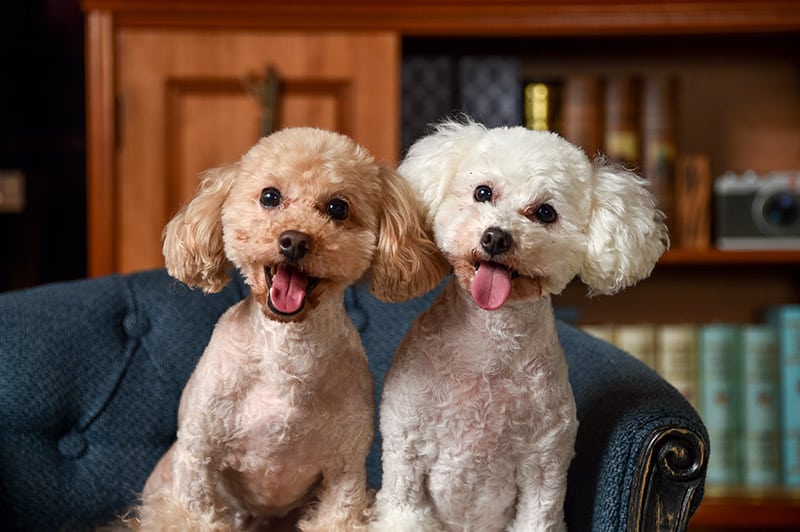
Does This Breed Get Along With Other Pets?
The Toy Poodle can get along with virtually any other pet. These dogs are playful but not aggressive. They tend to be very gentle and are not notoriously bitter or nippers like some other small breeds. The Toy Poodle would make an amazing companion for a dog of any size, provided the owner understands the Poodle’s size and treats the dog kindly.
Only you know your dog’s temperament and what is appropriate. Use your best judgment. Because these dogs are so small, they often pose no threat to house cats in any capacity. They will also likely leave alone some smaller pets, such as ferrets, guinea pigs, and rabbits, but you may not want to take that chance.

Things to Know When Owning a Toy Poodle
Food & Diet Requirements 🦴
Toy Poodles might be finicky eaters. They are very tiny dogs that can have a lot of trouble chewing traditional dry kibble. The pieces are simply too large, and you don’t want to make mealtime complicated for your little pal.
Many Toy Poodles enjoy wet, canned food or a combination. You can buy dry kibble explicitly designed for small dogs. The kibble size is only a fraction of what it normally is to help with ease of chewing.
Many families are choosing to spoil their pups these days, opting for fresh food diets instead. Typically, these require subscription-based commitments and often arrive on a timed schedule. These diets are becoming more popular because they are species-specific.
However, they are also much more costly than many options on the commercial market. Ultimately, the decision is yours. Remember, if you would like to explore homemade or raw diets, consult your veterinarian to ensure the recipes are suitable for your canine companion.
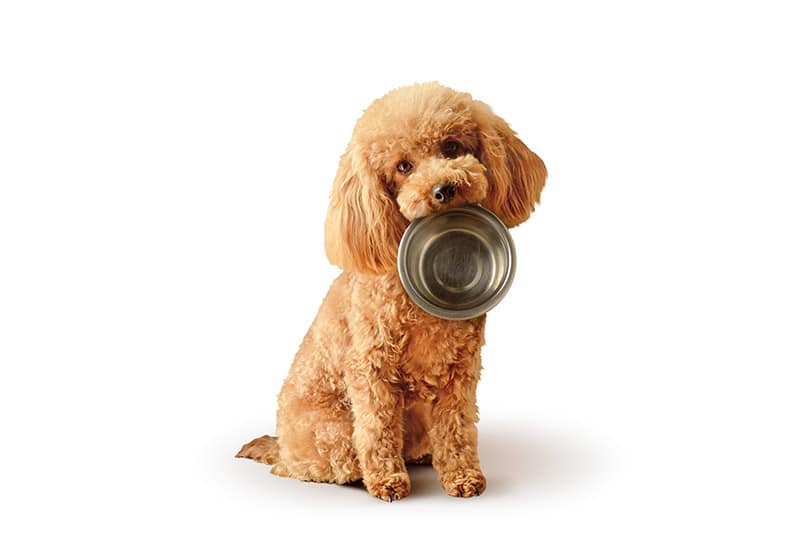
Exercise 🐕
If you’re the kind of person who has a rather sedentary lifestyle, the Toy Poodle might be perfect for you. These little dogs might love running and playing, but they tend to burn out their energy pretty quickly.
On average, these dogs need between 45 minutes to 1 hour of exercise per day. You can take them on brisk walks or let them run around an enclosed environment. They will love barking and playing, burning off some steam.
Keep in mind that these dogs can tucker out pretty quickly. They can also get overheated or very cold in extreme temperatures. Since they don’t have a lot of body weight to keep them warm, you should put sweaters on when taking them out in inclement weather.
Training 🎾
The Toy Poodle can be a little difficult to train. Even though they are incredibly intelligent and can absolutely pick up even complicated commands, they are a little stubborn. Each Poodle will be different, and some are extremely eager to please.
But many of them also know they are the tiny baby of the family and take advantage of any favoritism or special treatment. If you want your Poodle to listen, you must lay down the law the same way as you would with a dog of a different size.
Otherwise, you’re bound to have a spoiled pooch that thinks they rule the roost. If handled correctly, a Toy Poodle is absolutely capable of learning virtually anything you want to teach them.
Grooming ✂️
Grooming is an incredibly important part of Poodle care. Poodles rarely shed and are considered hypoallergenic. No dog is 100% hypoallergenic, but this particular breed is as close as you might get. While they might not shed frequently, they have long, curly coats.
If you have any part of their coat long, it will require frequent maintenance. Generally, you can brush with a bristle or slicker brush. Both of these brushes will help get rid of tangles and evenly distribute their natural oils.
Many will proclaim that Toy Poodles are completely hypoallergenic. We want to bust the myth right here. Even though Toy Poodles are much more hypoallergenic than other dogs, they still will trigger allergies and very sensitive people.
However, Toy Poodles can be an excellent choice for mild to moderate allergy sufferers as they tend not to trigger allergies as much. Plus, Toy Poodles shed very little, if any at all. This is another reason why they are so desirable for hybrid breeding programs.
Owners of curly dogs usually like to take their pets to the groomer. A professional groomer can pamper your dog while taking a lot of the headache out of it for you. You typically take your dog once every 4 to 6 weeks to get the latest hair trim and call it a day.
However, some pet parents prefer to groom at home. If you are interested, there are tools and resources on the market to teach you how to safely do so.
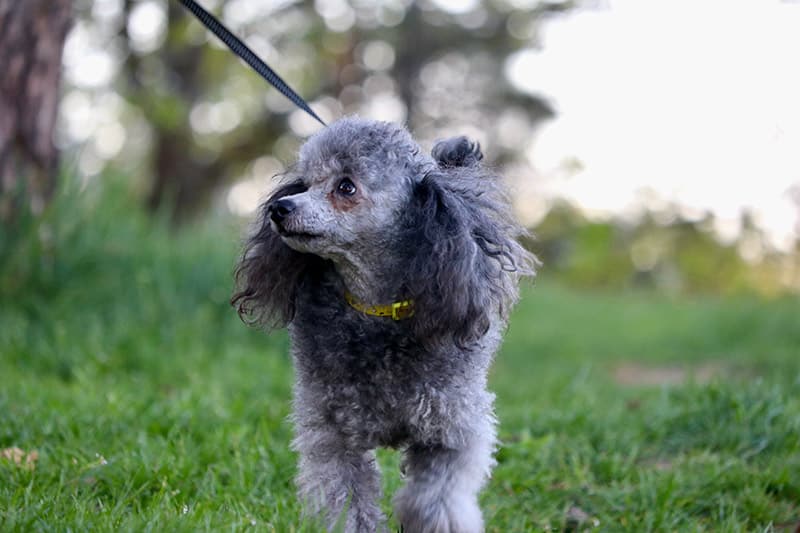
- You might also be interested in: 11 Best Dog Wipes: Reviews & Top Picks
Health and Conditions 🏥
To ensure the longevity of your dog, it is very important to keep up with routine vet visits. During your Poodle’s first year of life, they will have many encounters with their vet during processes like parasite prevention, vaccinations, spay or neuter surgery, and microchipping.
Like any dog, the Toy Poodle can experience certain genetic health issues. However, with proper breeding and general care, they can live long, healthy lives. The Poodle can have an impressive lifespan, ranging beyond 15 years in some cases.
However, if your Poodle was irresponsibly bred, this could leave open risk for behavioral problems or health condition development. Here are some common issues a Toy Poodle might face.
- Allergies
- Hip dysplasia
- Progressive retinal atrophy
- Epilepsy
- Hypoglycemia
- Collapsed trachea
Male vs. Female
You might not be able to tell a male from a female just by a first glance. They are both very small, and it could be difficult to gauge the sex based on size. However, the males do tend to weigh a little more than the females.
After sexual maturity, females will enter their heat cycles, and males will become sexually mature themselves. Most vets recommend that you get them fixed before they reach this age to avoid unwanted behaviors.
Females in heat cycles will bleed. So, if you don’t get your dog fixed before they enter the cycle, it is important to keep a diaper or other protective layer on them to prevent staining in the home.
Males might start violating random stuffed animals, pillows, or other objects. They might also start marking their territory by peeing all over your home.
As you can see, it is problematic for any dog to be completely left intact without being spayed or neutered. It would help if you always opted for this appointment as it reduces homelessness and gets rid of a big headache for you.
3 Little-Known Facts About the Toy Poodle
1. Toy Poodles can learn just about anything.
Toy Poodles are one of the easiest to train small dog breeds. They excel in many forms of training, including agility and other sports.
2. Toy Poodles are not truly hypoallergenic.
There is a common misconception that Poodles are completely hypoallergenic. While it’s true that they are much less triggering than other breeds, they might still be problematic to people with extreme allergies.
Also, just because someone mixes a Poodle with another breed, this also does not mean that the litter will be completely hypoallergenic either. They very well could take on traits of the other parent, meaning they will shed allergens just as much as any other dog.
3. Toy Poodles are Velcro dogs.
A Toy Poodle is considered a Velcro dog. They are very attached to their owners and dislike being alone. They can also make exquisite purse dogs, as they enjoy being toted around like the princesses and princes they are.

Final Thoughts
So now you know a little bit more about the Toy Poodle. This compact little dog is incredibly intelligent and certainly companionship material. They will get along with just about anyone or anything, making them suitable for various families and living spaces.
What was your favorite of all the interesting things you learned about this particular breed?
See also:
- Can Dogs Eat Peanut Butter? Is It Good for Them? Vet-Reviewed Health Facts
- Do You Have a Food-Obsessed Dog? Here’s How to Work Through It (Vet Approved)
Featured Image Credit: Mykhaylo_Kozelko, Shutterstock

